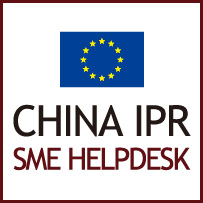Manufacturing non-disclosure agreements in China
 Many EU SMEs pursue partnerships with Chinese manufacturers, viewing them as relatively cheap yet still technically-skilled producers. While this strategy can benefit the companies that employ it, China—like many countries—is home to unscrupulous merchants who view IP theft as way of gaining their own advantage. The China IPR SME Helpdesk says that the most effective way for companies to protect themselves is to tailor iron-clad contracts specifically adapted to their intellectual property rights (IPR), and that should start with the drafting of a non-disclosure agreement.
Many EU SMEs pursue partnerships with Chinese manufacturers, viewing them as relatively cheap yet still technically-skilled producers. While this strategy can benefit the companies that employ it, China—like many countries—is home to unscrupulous merchants who view IP theft as way of gaining their own advantage. The China IPR SME Helpdesk says that the most effective way for companies to protect themselves is to tailor iron-clad contracts specifically adapted to their intellectual property rights (IPR), and that should start with the drafting of a non-disclosure agreement.
What are NDAs and NNNs?
At its core, a non-disclosure agreement (NDA) is a contract (or part thereof) between two parties which states that once Party A has revealed its trade secrets to Party B, Party B will refrain from disclosing those secrets to anyone else. Once a secret has been revealed it no longer enjoys any kind of legal protection and will consequently lose some, if not all, of its economic value.
However, a NDA is not necessarily a cure-all for preventing, or even deterring, the theft of trade secrets – it is possible for a NDA to fall short of offering the kind of comprehensive protection sought by SMEs. This could be due to a number of reasons: perhaps the contract is shoddy and does not address all potential risks; maybe the contract includes certain wording or provisions that nullify it; or it may even be that the NDA was never signed to begin with. It is therefore highly recommended that all SMEs sign a non-use, non-disclosure, non-circumvention (NNN) agreement before revealing any sensitive information to Chinese manufacturers.
The NNN: why NDAs may ‘not deter anyone’ in China
When looking to engage a Chinese manufacturer the best course of action is to triple-down on protection and opt for a NNN agreement. The three elements are:
- Non-use
This is an extremely important element of IPR protection. It means that manufacturers are prevented from using an SME’s IP to compete with it. - Non-disclosure
Manufacturers can bypass non-use agreements by disclosing the IP to a third party, thereby removing its protected status as a trade secret. To prevent this, NNN agreements mandate that trade secrets cannot be disclosed without the SME’s approval and that adequate steps must be taken to protect all such secrets. - Non-circumvention
Beyond protecting trade secrets, non-circumvention clauses inhibit manufacturers from capitalising on exclusive access to your products to sell unauthorised products in other markets. Essentially they prevent manufacturers from bypassing anti-counterfeiting methods built into an SME’s IP.
 When to sign an agreement: sending in the canary
When to sign an agreement: sending in the canary
A fatal error that SMEs frequently make when engaging a Chinese manufacturer is delaying signing a NNN agreement. Unfortunately, these agreements are sometimes considered to be of secondary importance and SMEs will either overlook their use or will wait until the last minute.
The best time to draft a NNN agreement is actually while preparing to search for manufacturers. Once the agreement has been written, it is then critical to send it to potential manufacturer partners before any secrets are disclosed. Many a Chinese lawyer has detailed horror stories about companies that have failed to protect their IP, or have been duped into believing that not signing a NNN agreement is actually part of Chinese business culture.[1] If a manufacturer refuses to sign such an agreement before learning key information about an SME’s IP, it’s a pretty strong indicator of less-than-honest motives. Even if a manufacturer has no intention of stealing your IP (which is unlikely in any case where a manufacturer tries to avoid signing a NDA), if they refuse to install adequate IP safeguards then the business relationship will probably not prove to be suitable. Any manufacturer that signs a NNN agreement, however, or even comes back and asks for provisions to protect their own proprietary information, is much more likely to be a reliable partner.
Naming names: beware of the manufacturer’s relationships with other firms
Deciding precisely who will sign contracts and receive classified information on behalf of the Chinese manufacturer is critical. It should be remembered that while manufacturers may be closely aligned with other firms through relationships between owners or long-standing business ties, these companies are separate legal entities in the eyes of Chinese courts.
Problems can crop up if a manufacturer tries to avoid its contractual obligations by signing an agreement with one company and then asking that information also be disclosed to a sister company not covered by the original agreement. This will allow the manufacturer’s sister organisation to freely exploit the SME’s proprietary information without recourse. This is particularly common with Chinese companies that have sister companies located in Macau, Hong Kong or Taiwan, where agreements enforceable by mainland courts may prove ineffective. If companies in these jurisdictions become part of an agreement they should be bound by separate NNN agreements that are specifically designed to be enforceable in those jurisdictions.
Even honest manufacturers may see no harm in circumventing carelessly crafted contracts. In China, many companies belong to larger corporate groups or identify as state-owned enterprises (SOEs). These companies may not consider other companies within their group or other SOEs operating within the same sector to be competitors and may see no harm in sharing an SME’s trade secrets with them. In this case, what seems like harmless collaboration to the Chinese firm could actually constitute a grave blow to your firm’s competitive advantage.
These kinds of relationships pose added security risks that need to be addressed while the contract is being drafted. In such situations, it is not against decency or local business culture to insist that all manufacturers that will be privy to classified information are bound by agreements and will be fully liable if the information is disclosed within their group. If possible, asking that individuals working for the manufacturer personally sign the NNN agreement and accept personal liability if it is broken can help to further solidify a contract.
An often overlooked aspect of enforcing NNN agreements is ensuring that the SME’s communications themselves abide by the agreement. By making it clear which information is classified or is considered a trade secret, SMEs can prevent abuse by unscrupulous manufacturers or even costly errors by their own employees. Once a NNN agreement is signed with a Chinese firm, SMEs should be careful to only disclose secrets to that firm and insist that that firm does not disclose those secrets to anyone else.
Conclusion
An SME should sign a NDA with any manufacturer to whom it plans to reveal any confidential details such as sensitive product information, designs and sketches, business strategies or client information. Non-disclosure agreements are quick and inexpensive, and a basic knowledge of key clauses is enough for effective use with manufacturers or employees. They are widely used in China and well-accepted by Chinese courts, so a Chinese third party that is unwilling to sign an NDA is likely not a trustworthy potential business partner and should be treated with caution.
 The China IPR SME Helpdesk is a European Union co-funded project that provides free, practical business advice relating to China IPR to European SMEs. To learn about any aspect of intellectual property rights in China, including Hong Kong, Taiwan and Macao, visit our online portal at www.china-iprhelpdesk.eu. For free expert advice on China IPR for your business, e-mail your questions to: question@china-iprhelpdesk.eu. You will receive a reply from one of the Helpdesk experts within three working days. The China IPR SME Helpdesk is jointly implemented by DEVELOPMENT Solutions, the European Union Chamber of Commerce in China and European Business Network (EBN).
The China IPR SME Helpdesk is a European Union co-funded project that provides free, practical business advice relating to China IPR to European SMEs. To learn about any aspect of intellectual property rights in China, including Hong Kong, Taiwan and Macao, visit our online portal at www.china-iprhelpdesk.eu. For free expert advice on China IPR for your business, e-mail your questions to: question@china-iprhelpdesk.eu. You will receive a reply from one of the Helpdesk experts within three working days. The China IPR SME Helpdesk is jointly implemented by DEVELOPMENT Solutions, the European Union Chamber of Commerce in China and European Business Network (EBN).
[1] Dickinson, Steve, China NNN Agreements: Make Sure Yours Bites, China LawBlog, 9th November, 2015, viewed 7th March, 2016, <http://www.chinalawblog.com/2015/11/china-nnn-agreements-make-sure-yours-bite.html>


Recent Comments